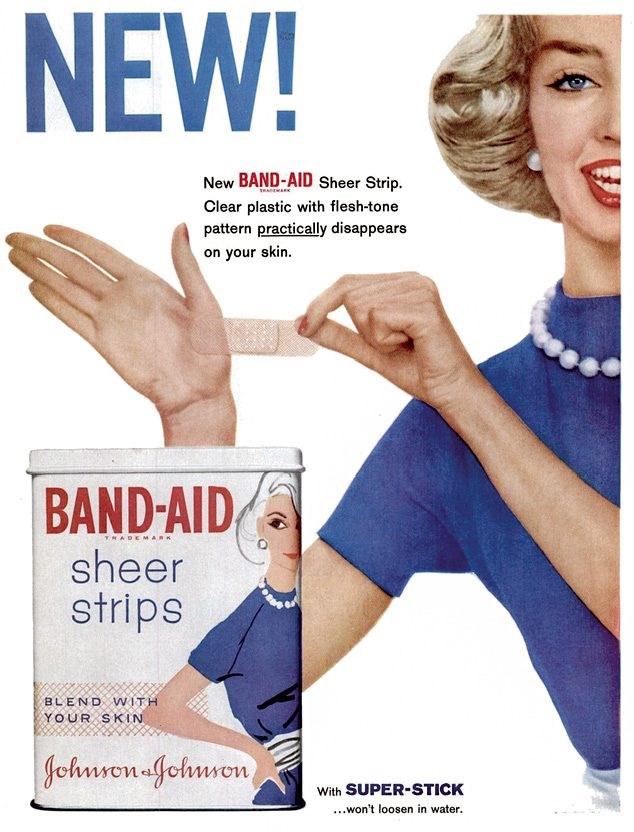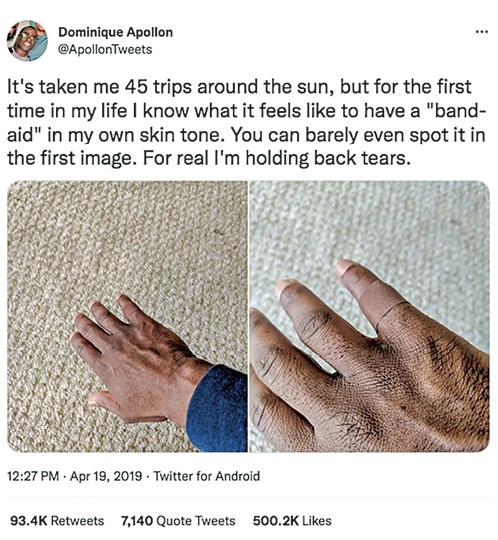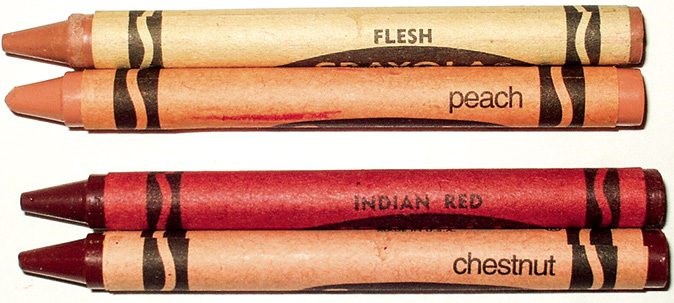Following the worldwide outcry at the murder of George Floyd by Minneapolis police officers two years ago this month, in June of 2020 Johnson & Johnson announced that for the first time in 99 years of manufacture, Band-Aids would be produced in a range of skin tones, not just Caucasian.
For decades, the default “flesh colour” of Band-Aids and other brands of adhesive bandages was cited by racial equality proponents as an example of institutionalized racism, in which the standard, “normal” human was assumed to be white—and typically a white male.

A pioneering critic of this attitude was Peggy McIntosh, at the time an Associate Director of the Wellesley College Center for Research on Women. In 1989, the magazine Peace & Freedom published her article, “White Privilege: Unpacking the Invisible Knapsack,” which itemized 26 examples of instances and situations in which whites benefited from an “invisible package of unearned assets” simply owing to their skin tone.
Here are those 26 examples, the kindling that set ablaze a slow-burn societal reckoning over unacknowledged racism that continues to today.
Excerpted from “White Privilege: Unpacking the Invisible Knapsack,” by Peggy McIntosh, Peace & Freedom magazine, July/August 1989.
My schooling gave me no training in seeing myself as an oppressor, as an unfairly advantaged person, or as a participant in a damaged culture. I was taught to see myself as an individual whose moral state depended on her individual moral will. My schooling followed the pattern [that]: whites are taught to think of their lives as morally neutral, normative, and average, and also ideal, so that when we work to benefit others, this is seen as work which will allow “them” to be more like “us.”
I decided to try to work on myself at least by identifying some of the daily effects of white privilege in my life. I have chosen those conditions which I think in my case attach somewhat more to skin-color privilege than to class, religion, ethnic status, or geographical location, though of course all these other factors are intricately intertwined. As far as I can see, my African American co-workers, friends and acquaintances with whom I come into daily or frequent contact in this particular time, place, and line of work cannot count on most of these conditions.
1. I can if I wish arrange to be in the company of people of my race most of the time.
2. If I should need to move, I can be pretty sure of renting or purchasing housing in an area which I can afford and in which I want to live.
3. I can be pretty sure that my neighbors in such a location will be neutral or pleasant to me.
4. I can go shopping alone most of the time, pretty well assured that I will not be followed or harassed.
5. I can turn on the television or open to the front page of the paper and see people of my race widely represented.
6. When I am told about our national heritage or about “civilization,” I am shown that people of my color made it what it is.
7. I can be sure that my children will be given curricular materials that testify to the existence of their race.
8. If I want to, I can be pretty sure of finding a publisher for this piece on white privilege.
9. I can go into a music shop and count on finding the music of my race represented, into a supermarket and find the staple foods which fit with my cultural traditions, into a hairdresser’s shop and find someone who can cut my hair.
10. Whether I use checks, credit cards, or cash, I can count on my skin color not to work against the appearance of financial reliability.
11. I can arrange to protect my children most of the time from people who might not like them.
12. I can swear, or dress in second-hand clothes, or not answer letters, without having people attribute these choices to the bad morals, the poverty, or the illiteracy of my race.
13. I can speak in public to a powerful male group without putting my race on trial.
14. I can do well in a challenging situation without being called a credit to my race.
15. I am never asked to speak for all the people of my racial group.
16. I can remain oblivious of the language and customs of persons of color who constitute the world’s majority without feeling in my culture any penalty for such oblivion.
17. I can criticize our government and talk about how much I fear its policies and behavior without being seen as a cultural outsider.
18. I can be pretty sure that if I ask to talk to “the person in charge,” I will be facing a person of my race.
19. If a traffic cop pulls me over or if the IRS audits my tax return, I can be sure I haven’t been singled out because of my race.
20. I can easily buy posters, postcards, picture books, greeting cards, dolls, toys, and children’s magazines featuring people of my race.
21. I can go home from most meetings of organizations I belong to feeling somewhat tied in, rather than isolated, out-of-place, outnumbered, unheard, held at a distance, or feared.
22. I can take a job with an affirmative action employer without having co-workers on the job suspect that I got it because of race.
23. I can choose public accommodation without fearing that people of my race cannot get in or will be mistreated in the places I have chosen.
24. I can be sure that if I need legal or medical help, my race will not work against me.
25. If my day, week, or year is going badly, I need not ask of each negative episode or situation whether it has racial overtones.
26. I can choose blemish cover or bandages in “flesh” color and have them more or less match my skin.

I repeatedly forgot each of the realizations on this list until I wrote it down. For me white privilege has turned out to be an elusive and fugitive subject. The pressure to avoid it is great, for in facing it I must give up the myth of meritocracy. If these things are true, this is not such a free country; one’s life is not what one makes it; many doors open for certain people through no virtues of their own. ◆



